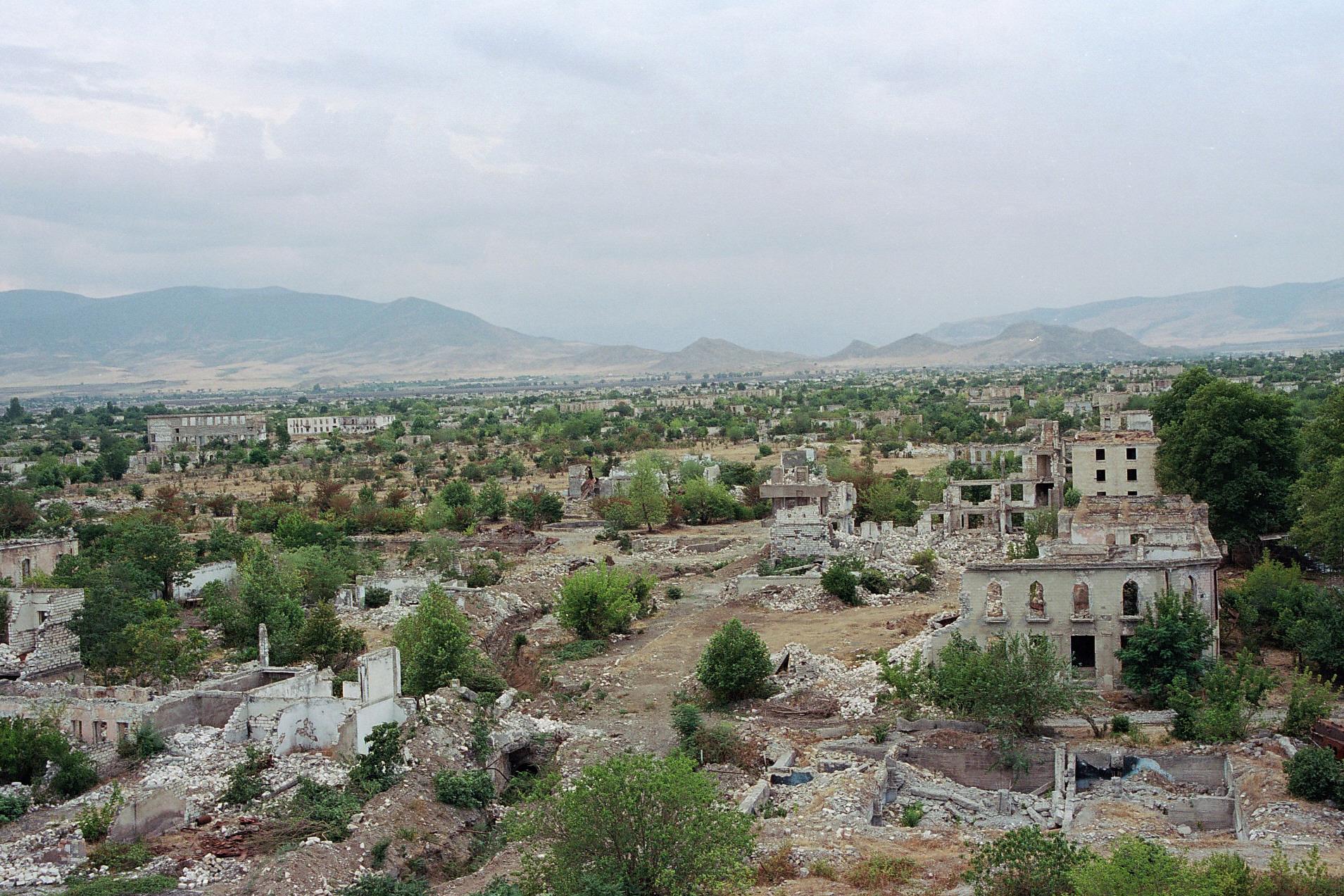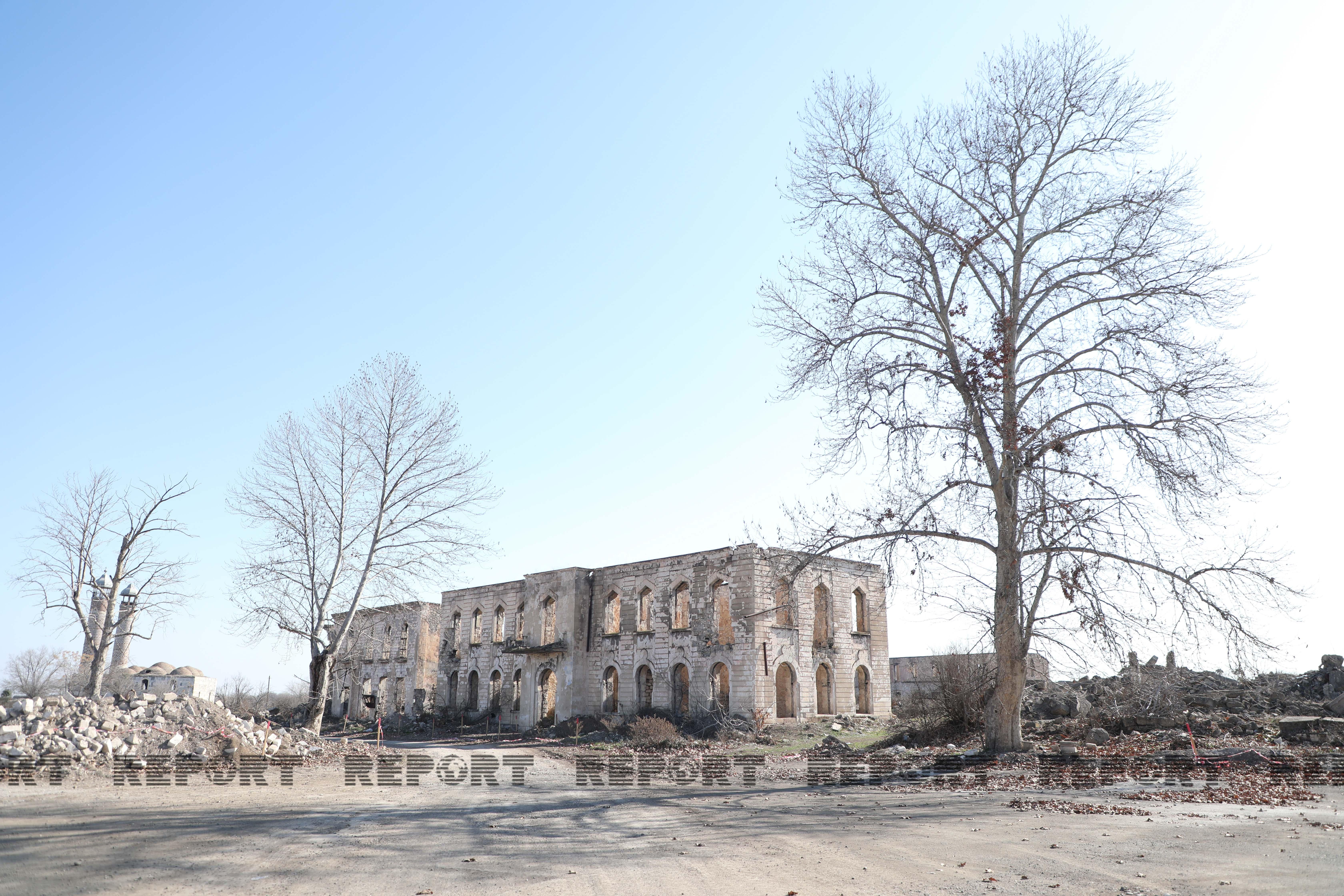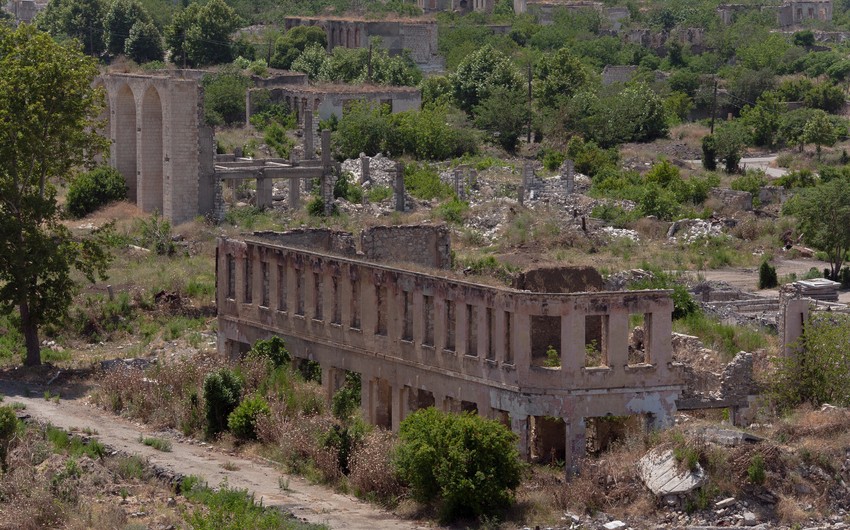Italy's Lo Spessore analytical portal published an article headlined 'Armenia's new political game to discredit Azerbaijan' by Italian researcher-journalist Domenico Letizia. The article exposes Armenian lies about the 'temple' illegally built by Armenians during the occupation of the Jabrayil district and brings the realities related to the issue to the attention of the Italian community.
Report informs that, according to the article, Azerbaijan is known worldwide for its protection of mosques, monuments of Jewish culture, as well as Christian churches and religious heritage and freedom of religion throughout the country, including the territories liberated from Armenian occupation.
"After the end of the conflict with Armenia, Azerbaijan's Ministry of Culture said that as a multicultural and multireligious community, for centuries Azerbaijan has been a home to all ethnicities and religions, who lived and worked together in peace and the Azerbaijani state pays the due attention to the protection of cultural heritage, its restoration and reconstruction. The Azerbaijani Christian community is an integral part of Azerbaijani society. Its monuments, places of worship, and churches are protected by the state and regularly restored. In October 2016, during the visit to Azerbaijan, Roman Pope Francis evaluated Azerbaijan as a model country for its religious tolerance. Restoration and reconstruction of historical and religious monuments, including churches and synagogues, is an integral part of the policy pursued by the Azerbaijani state to promote multiculturalism."

The author noted that the footage prepared by a BBC correspondent in Jabrayil, one of the regions that were liberated from Armenian occupation, has caused the spread of a new series of untrue reports about the pearl of the Caucasus:
"The correspondent, who was looking for the 'Armenian temple' based on the whereabouts, provided to him by Armenia, did not find the 'temple' and came to the conclusion that the 'temple' was destroyed by Azerbaijan. The BBC journalist tried to give a religious coloring to the conflict by describing this building as a part of the 'Armenian heritage' in the territory. As confirmed by the resolutions of the UN Security Council, only Azerbaijanis lived in the territory of the Jabrayil region before its occupation by Armenians in 1993 through to October 2020. The 'temple,' attributed to the Armenian heritage, was built here in 2017 for soldiers near a military unit. In October 2017, Armenian media wrote about the opening of this 'church' near a military unit in Jabrayil, the region for which Armenians invented the name 'Mekhakavan.' As the Armenian media noted at that time, the church symbolized that 'the lands will never be returned to Azerbaijan.' Therefore, the indicated establishment, along with not being a monument of historical architecture, is also not a part of local cultural and religious heritage. Neither is it evidence of the 'centuries-old history of Armenians.' It is a building constructed in the Azerbaijani territory during the occupation. The existence of this establishment is as illegal as any other illegal activity carried out by the Armenian government and private companies in the occupied territories of Azerbaijan during the years of occupation. Last Thursday, when posting a tweet, saying 'building chapel while vandalizing everything rlt w/ Azerbaijan is contrary to basic principles of Christianity,' Assistant to President of Azerbaijan Hikmet Hajiyev reminded that in 2017 when he worked as chief of the Foreign Ministry's press service, he made a statement about the illegal construction of a military chapel in the occupied Jabrayil region, where Armenians never lived. Hikmet Hajiyev also reminded that in 2017, at the request of Azerbaijan, the OSCE Minsk Group co-chairs visited the then-occupied Jabrayil and recorded the temple construction. "At the end of the mission, it was said that the temple was built for the needs of the soldiers here," wrote Hikmet Hajiyev, adding that the attempt to change the religious and cultural nature of the occupied territories was illegal. As for the allegations of deliberate destruction of the 'temple,' as shown in the BBC video report, it should be noted that during the 44-day war last fall, there were fierce battles for the liberation of Jabrayil. As the 'chapel' was built close to the military unit, it could be destroyed during the military actions."

The article says that Armenia's 'geopolitical game' is not related to protecting minorities and different religious denominations but is a political game to discredit Azerbaijan: "On the one hand, this is a political paradox by the government to distract people from the current internal chaos. On the other hand, behind this propaganda stand those who intend to instill feelings of hatred and revenge in the Armenian people towards Azerbaijan and cause a new war in the region, which can bring tragedy to the Armenian people and endanger their existence. During the 30-year occupation, Armenia did its best to wipe out Azerbaijan's existence by changing the history of the 19th century Orthodox churches, especially ancient temples and monasteries of Caucasian Albania, which are located in the territory of Azerbaijan and have nothing to do with Armenia. Everything, which they could not adapt to a new regime, was destroyed. Two cities of Azerbaijan – Aghdam and Fuzuli – became ghost cities. It was revealed after liberation that these cities and their heritage were razed to the ground. Unfortunately, none of these facts was highlighted in the international media outlets. Moreover, by visiting Baku, every Italian citizen and the world can understand how Azerbaijan protects Armenian heritage. Despite the conflict and demolition of Azerbaijan's cultural heritage in the occupied territories, the Azerbaijani government preserved the Armenian church, in which nearly 5,000 books in the Armenian language are stored. The church is open for all visitors."



 https://static.report.az/photo/9ffa4396-cfce-3e02-8430-b9997f6fff49.jpg
https://static.report.az/photo/9ffa4396-cfce-3e02-8430-b9997f6fff49.jpg

